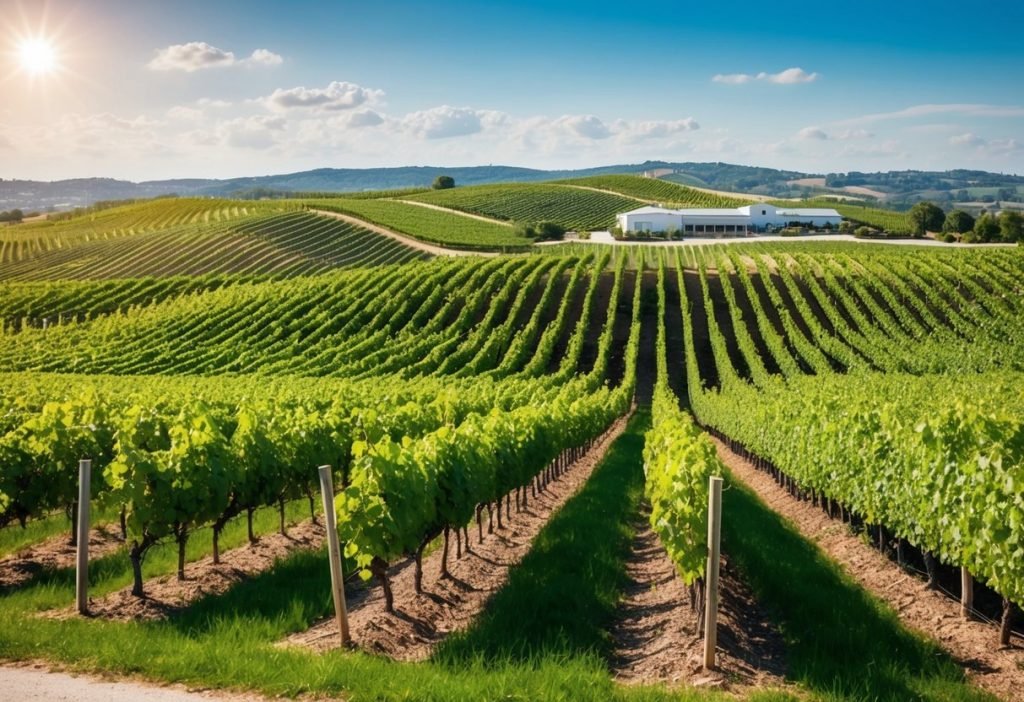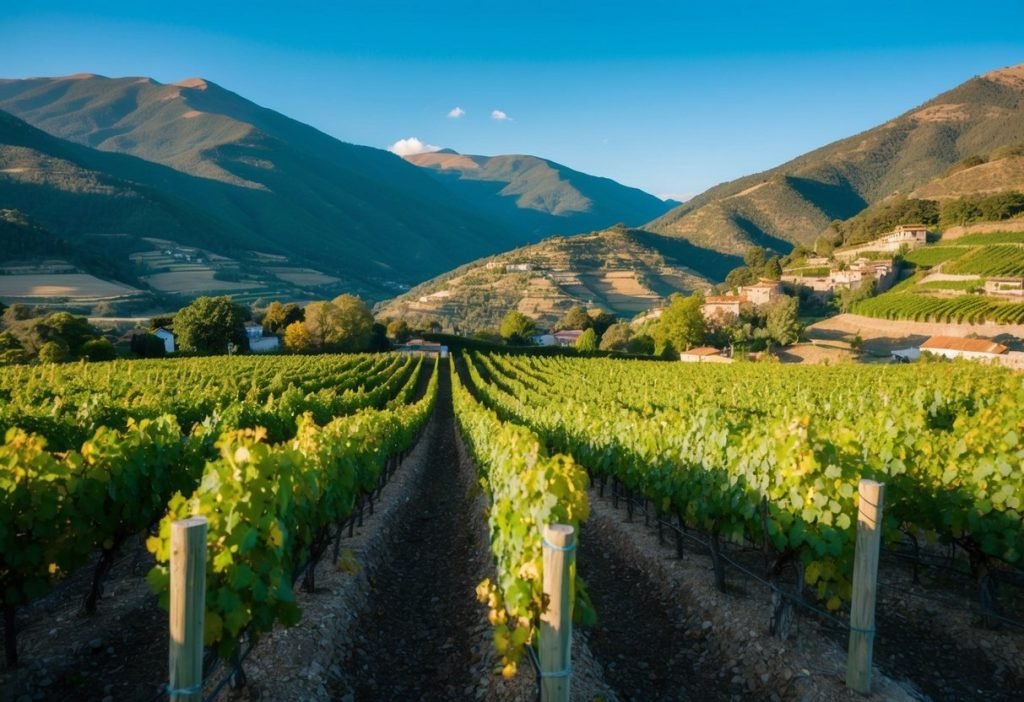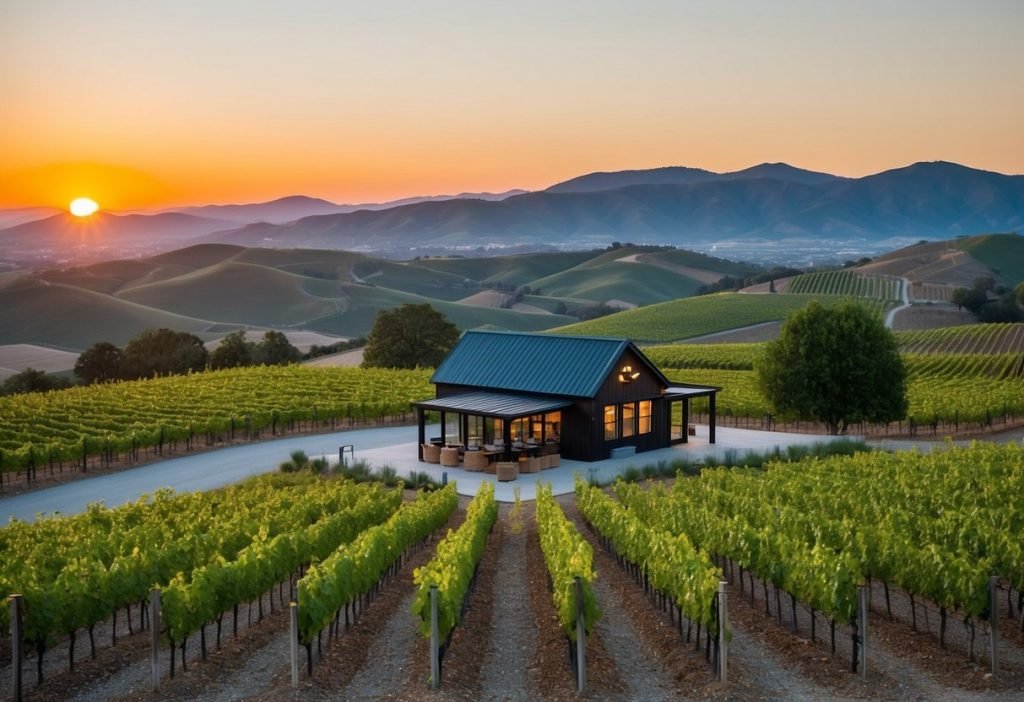South Africa is a notable player in the global wine industry, celebrated for its unique terroirs and diverse grape varieties. This country’s wine landscape showcases a wide range of varieties, including Chenin Blanc, Pinotage, and Shiraz, each offering distinct flavors and characteristics. With climates ranging from Mediterranean to semi-arid, South Africa produces wines that can satisfy various palates and preferences.

The influence of both Old World and New World wine-making techniques is evident in South African wines. Many winemakers are embracing modern approaches while respecting traditional practices, creating a rich tapestry of styles and tastes. This diversity not only enhances the local wine culture but also elevates South Africa’s reputation on the international stage.
Exploring South African wine varieties reveals much about the country’s heritage and innovation in viticulture. Each bottle tells a story rooted in its environment, reflecting the passion of the winemakers. Readers will gain insights into the key varieties, the regions they thrive in, and the best ways to enjoy these exceptional wines.
History of South African Wine
The history of South African wine is a narrative rich with cultural influences, expansion, and resilience. Its evolution has been shaped by early innovation, colonial enterprise, and significant changes in the post-apartheid era.
Early Beginnings
Wine production in South Africa can be traced back to 1659, when the first vineyards were established by the Dutch East India Company. The Cape Colony was recognized for its favorable climate and fertile soil, ideal for viticulture.
Early settlers cultivated European grape varieties, particularly Muscat and Shiraz. The French Huguenots, who arrived in the 17th century, played a pivotal role in refining winemaking practices. Their legacy includes the establishment of many renowned estates in the Franschhoek Valley, which remains a key wine-producing region today.
Colonial Expansion and Influence
Throughout the 18th and 19th centuries, South African wine gained international recognition. The British colonial period brought further changes, including a shift toward more commercial production.
Some notable developments include the establishment of export markets in Europe and the innovation of fortified wines, such as Vin de Constance. These products showcased South Africa’s ability to compete with established wine-producing nations. However, challenges such as the phylloxera epidemic in the late 19th century severely impacted vineyards, leading to a temporary decline in production.
Post-Apartheid Developments
The end of apartheid in the early 1990s heralded a new era for South African wine. The industry embraced modern techniques and focused on quality over quantity, establishing itself on the global stage.
Investment in technology and international partnerships facilitated the growth of wineries in regions like Stellenbosch and Paarl. Additionally, the rise of organic and sustainable practices has attracted a niche market. Recognition at international wine competitions has further solidified South Africa’s reputation, making it a key player in the global wine market.
Major Wine Regions
South Africa is known for its diverse wine regions, each contributing unique characteristics to its wine profile. Key areas include Stellenbosch, Paarl, Franschhoek, and Swartland, each renowned for specific grape varieties and wine styles.
Stellenbosch
Stellenbosch is often considered the heart of the South African wine industry. The region is famous for its robust red wines, particularly Cabernet Sauvignon and Merlot. Its Mediterranean climate, combined with rich soils, creates optimal conditions for grape growing.
The varied terroir includes granite and sandstone, which affects the flavor profiles of the wines produced. Stellenbosch also boasts a vibrant wine route featuring numerous estates offering tastings and tours. Wineries frequently showcase both traditional and innovative winemaking techniques.
Paarl
Paarl is another significant wine-producing area located near Stellenbosch. It is distinguished by its mountainous landscapes and diverse microclimates. Notably, the region produces premium Chenin Blanc and Shiraz wines.
Paarl’s winemakers employ a mix of traditional and modern practices, allowing for a range of wine styles. The area’s rich history contributes to a unique cultural experience for visitors, with several wine farms providing tastings alongside local cuisine. Paarl’s wine route is a popular destination for both locals and tourists.
Franschhoek
Franschhoek is renowned for its picturesque scenery and French heritage. This valley is particularly known for its exceptional white wines, including Chardonnay and Sauvignon Blanc. The region also produces noteworthy reds, such as Bordeaux blends.
Franschhoek’s climate, characterized by warm days and cool nights, fosters ideal grape ripening. Many wineries in the area offer fine dining experiences, pairing gourmet food with their wines. The annual Franschhoek Wine Festival attracts numerous visitors, highlighting the region’s vibrant wine culture.
Swartland
Swartland is emerging as a dynamic and innovative wine region. Known for its old bush vines, it excels in producing wines from Rhône varietals, particularly Grenache and Syrah. The region’s dry climate and diverse soil types encourage natural winemaking practices.
Winemakers in Swartland emphasize terroir-driven wines, showcasing the unique characteristics of their grapes. The area is also recognized for its commitment to sustainable farming. Swartland has gained international attention for its unique flavors and quality, appealing to adventurous wine enthusiasts.
Popular Grape Varieties

South Africa is renowned for its diverse wine production, featuring several key grape varieties. Each of these varieties contributes unique flavors and characteristics that shape the country’s wine landscape.
Chenin Blanc
Chenin Blanc is the most widely planted grape in South Africa. Known for its versatility, it produces a range of wine styles, from dry to sweet.
This variety often exhibits flavors of apple, pear, and honey, making it appealing to many palates. The climate and terroir of South Africa allow Chenin Blanc to thrive, yielding wines with balanced acidity and good aging potential.
It is particularly celebrated in regions like the Western Cape, where winemakers utilize both modern and traditional techniques. Chenin Blanc has received international recognition, solidifying South Africa’s reputation in the global wine market.
Cabernet Sauvignon
Cabernet Sauvignon is another staple variety in South Africa, recognized for its bold character and structure. This grape thrives in warmer areas, such as Stellenbosch, where it achieves optimal ripeness.
Typical flavor profiles include dark fruits like blackcurrant and plum, complemented by notes of cedar and green pepper. The tannins in South African Cabernet Sauvignon are often firm, contributing to its aging ability.
Winemakers frequently blend this variety with other grapes, enhancing complexity and depth in the final product. The global appeal of Cabernet Sauvignon continues to grow, showcasing the quality produced in South Africa.
Pinotage
Pinotage is a unique South African grape, known for being a cross between Pinot Noir and Cinsault. This variety embodies the country’s winemaking heritage and offers a distinct flavor profile.
Wines made from Pinotage often showcase flavors of red fruit, banana, and earthy notes. It can produce both light-bodied and full-bodied wines, depending on the vinification style applied.
The grape has gained popularity in both domestic and international markets, contributing to its status as a symbol of South African wine. Notable regions for Pinotage include Swartland and the Cape Winelands.
Syrah/Shiraz
Syrah, also known as Shiraz in South Africa, has flourished in various regions across the country. This grape is celebrated for its rich, spicy character and dark fruit flavors.
Common tasting notes include blackberry, plum, and black pepper, often accompanied by hints of smokiness. South African Syrah tends to have a bold structure and velvety texture.
The versatility of this grape allows for both single varietals and blends, enhancing its appeal. Areas like Paarl and Franschhoek produce some of the most acclaimed Syrah wines, showcasing the potential of this variety in South Africa.



